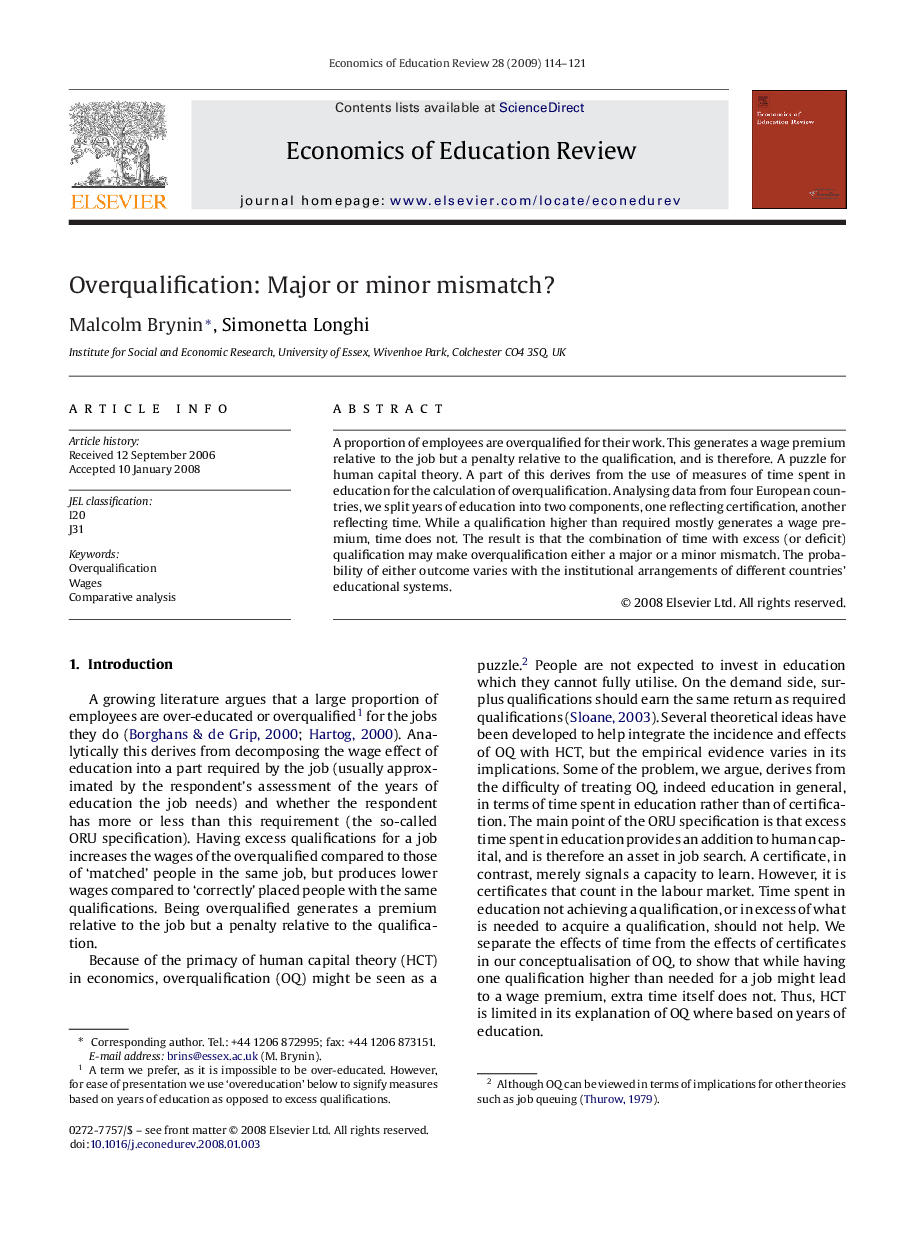| Article ID | Journal | Published Year | Pages | File Type |
|---|---|---|---|---|
| 354801 | Economics of Education Review | 2009 | 8 Pages |
A proportion of employees are overqualified for their work. This generates a wage premium relative to the job but a penalty relative to the qualification, and is therefore. A puzzle for human capital theory. A part of this derives from the use of measures of time spent in education for the calculation of overqualification. Analysing data from four European countries, we split years of education into two components, one reflecting certification, another reflecting time. While a qualification higher than required mostly generates a wage premium, time does not. The result is that the combination of time with excess (or deficit) qualification may make overqualification either a major or a minor mismatch. The probability of either outcome varies with the institutional arrangements of different countries’ educational systems.
